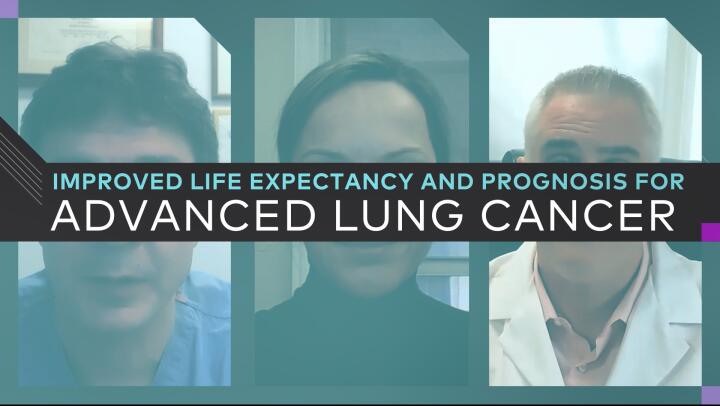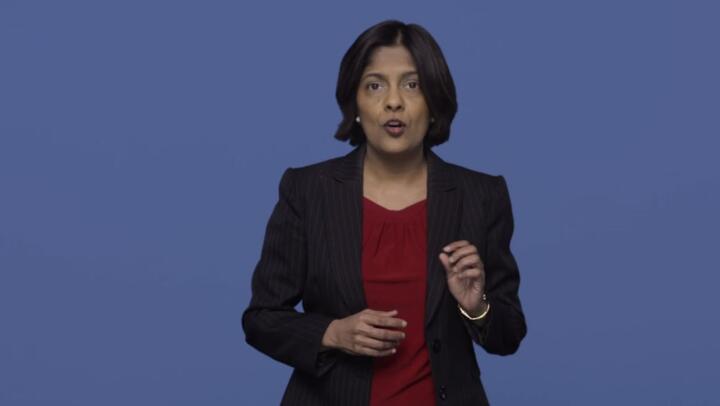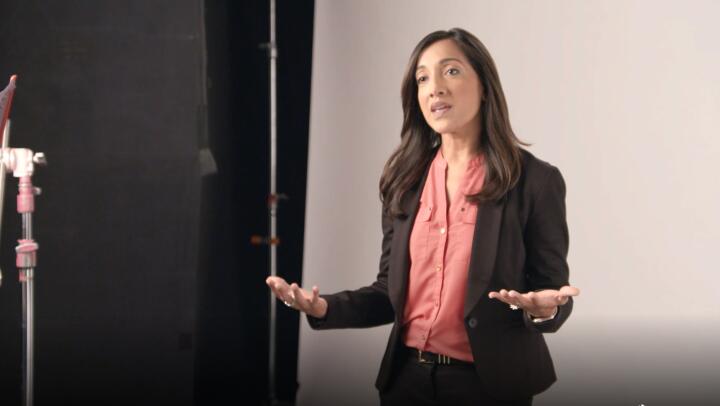
The amount of information available today on lung cancer types, treatments, and specialists can feel overwhelming.
Remember, lung cancer doctors are here to help decipher the details and answer your questions. Instead of seeing one doctor, you’ll likely work with a coordinated team of specialists in a modern approach to comprehensive care.
What Does Stage 3 Lung Cancer Mean for You?
At the highest level, there are two main types of lung cancer, small cell lung cancer and non-small cell lung cancer (NSCLC). The most common type is NSCLC. About 85 % of people diagnosed with lung cancer have this type. Lung cancer specialists stage NSCLC based on the size of the tumor, where it is in the lungs, and how far the cancer has spread. You may hear this process referred to as “TNM”:
- Tumor size
- Node involvement—whether the cancer has spread to your lymph nodes
- Metastasis—whether the cancer has spread to another part of your body
Stage 3 means the cancer has spread from your lungs to your chest and lymph nodes, but that’s not the whole story. Stage 3 is further divided into subtypes, with many variations. Lung cancer specialists consider a vast array of factors in personalizing your treatment plan.
Lung Cancer Doctors: Common Members of a Stage 3 Lung Cancer Care Team
Your lung cancer team will likely include the following experts.
- Thoracic surgeons specialize in lung, chest, and heart operations
- Radiation oncologists specialize in radiation therapy to kill cancer cells
- Medical oncologists specialize in treating cancer with medicines such as chemotherapy, targeted therapy, and immunotherapy (biologics)
- Pulmonologists specialize in understanding the respiratory system and lung diseases
- Registered nurses, nurse practitioners, home health nurses, physician assistants, and other supporting medical professionals are integrated into your lung cancer care team.
Beyond Your Cancer: Specialists Who Support Whole-Person Care
You’re so much more than your lung cancer, and you may have different mental, physical, and emotional needs than you did before your diagnosis. To provide holistic care, the following specialists may be added to your care team:
- Registered dietician for help eating around side effects and getting the nutrition you need
- Rehabilitation therapist for exercises to build strength and enhance mobility
- Mind-body therapist for managing stress, fatigue, and sleep problems
- Psychologist or psychiatrist for controlling depression and anxiety
- Social worker for access to supportive community resources and help with insurance questions
Complementary Cancer Specialists Vs. “Specialists” to Avoid
Complementary cancer treatments from licensed or accredited professionals can help ease the side effects of cancer treatment, including pain, nausea, and vomiting. These complementary treatments include:
- Massage
- Yoga
- Hypnosis
Before beginning a complementary treatment, it’s critical to talk with your doctor to make sure steps you’re taking on your own aren’t un-doing steps your care team is taking on your behalf. It’s also important to understand that not all complementary or alternative treatments are valid. Some may do more harm than good. The American Cancer Society recommends watching for these “red flags”:
- Pressure to stop your current treatment
- Promise of a cure
- Travel requirements
Does it seem like a lot to learn? It is, but you’re not on your own. Good doctors are committed to patient education. They know teaching you is part of treating you. Look for this quality in your healthcare team. You deserve the whole package.

















